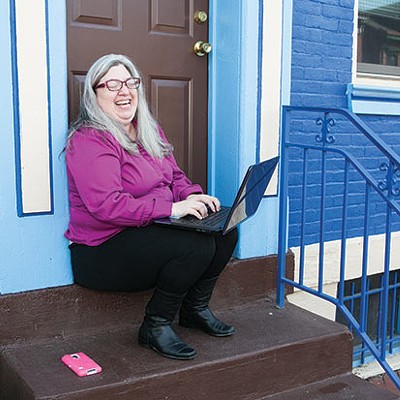How low is Corbett's rate? It would cost drillers less than a proposal made last year by their own trade group, the Marcellus Shale Coalition. It would also be less than the rates charged by many other states … and sought by Corbett's own fellow Republicans.
It's difficult to compare different tax schemes. Some charge a flat fee; others are based on the price of gas, which can change. Estimates also depend on guesses about how much gas a well will produce.
But the Pennsylvania Budget and Policy Center, a liberal Harrisburg think tank, has made such a comparison. Based on GOP assumptions and historical trends, the PBPC estimates that each well will produce 3.8 billion cubic feet of gas, and that the price of gas will be $4.28 per thousand cubic feet. (That's in the ballpark of today's prices.) Such a well would produce $16.26 million in revenue for the owners. But how much would it produce for residents?
1 percent
Corbett is pushing a sliding "impact fee" that starts at $40,000 the first year, declining to zero after 10 years.
The Marcellus Shale Coalition Plan
2.5 percent
In 2010, the industry group sought a gas tax of 1.5 percent in the first five years a well operates, rising to 5 percent afterward and then declining to zero when production decreases.
The DiGirolamo/Murt Plan
4.7 percent
GOP state Reps. Gene DiGirolamo and Tom Murt have proposed a base 4.9 percent tax on the value of gas until well production falls below 60,000 cubic feet per day.
The Quinn Plan
4.4 percent
State Rep. Marguerite Quinn (R-Doylestown) has proposed a flat $50,000 annual fee, which will decline as well production drops off.
The Scarnati Plan
3.1 percent
State Senate President pro tempore Joe Scarnati has proposed a base fee of $10,000 per year, plus fees based on the price of gas and well production.
The Rendell/West Virginia Plan
6.1 percent
West Virginia charges a 5 percent levy on the price of gas, plus a flat fee of 4.7 cents per thousand cubic feet; former Gov. Ed Rendell proposed a similar rate for Pennsylvania.
























